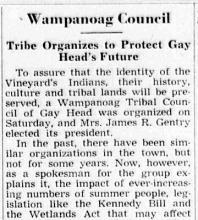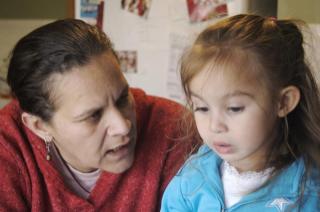Wampanoag history
2015
The following is an award-winning essay written by Womsikuk James for the Young Native Writer’s Essay Contest.
2011
For more than a century on Martha’s Vineyard and Cape Cod, the words of the Wampanoag were not their own.
“It was prophesied that language would go away from here for a time,” Jessie Little Doe Baird intones at the opening of filmmaker Anne Makepeace’s documentary We Still Live Here. “When the appointed time came, if the people here decided that they wanted to welcome language home then there would be a way made for that to happen.”
2007
When the Wampanoag Tribe of Gay Head (Aquinnah) broke ground on a community center building in the spring of 2004, tribal leaders envisioned it as an important gathering place, and said young members would be shooting hoops inside the new gymnasium by the end of the summer.
Three years later, the building is still unoccupied, sitting half-finished on tribal lands.
When the Mashpee Wampanoag Tribe received a telephone call from U.S. Department of Interior last week, formally announcing their federal recognition as a sovereign Indian tribe, members of the Wampanoag Tribe of Gay Head (Aquinnah) looked across to the Cape with a warm heart and a jaded eye.
They had lived through a similar moment almost 20 years ago to the day, when they celebrated their status as the first federally recognized tribe in the commonwealth.




